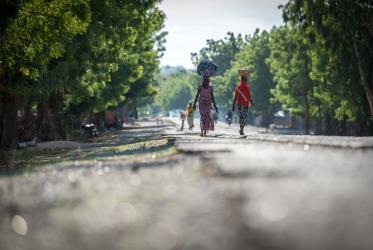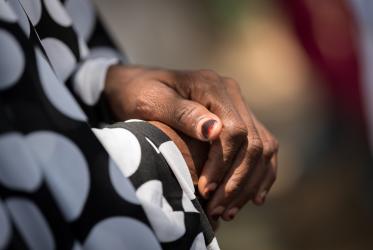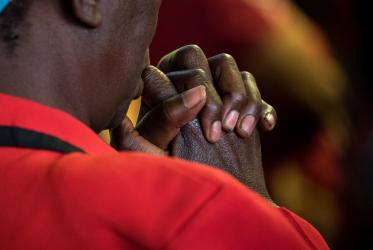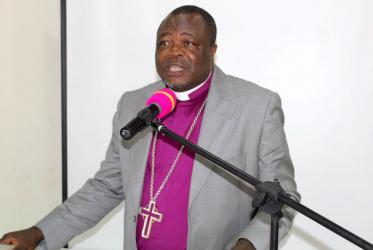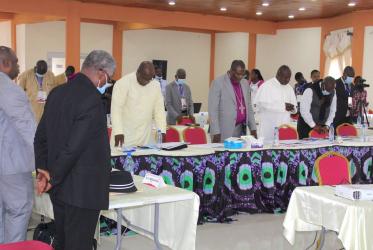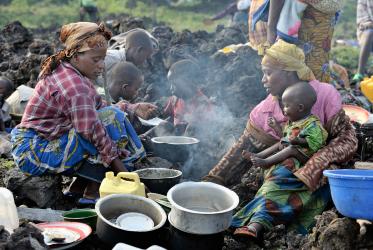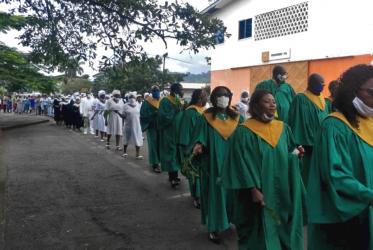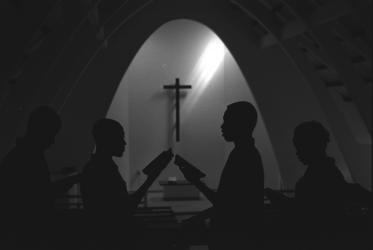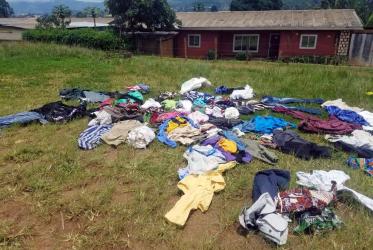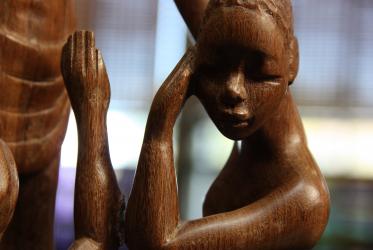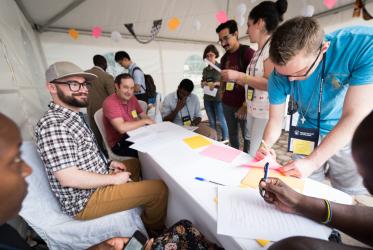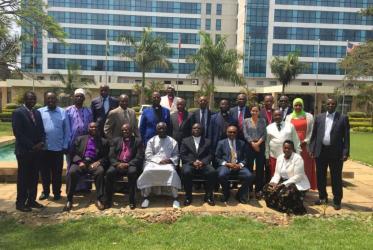Displaying 1 - 20 of 22
26 January 2023
Cameroon conference on peace empowers religious leaders
30 November 2020
WCC condemns killing of schoolchildren in Cameroon
26 October 2020
WCC appeals to UN: human rights must be upheld in Cameroon
09 September 2020
A plea from Cameroon: “Take up our case to God”
25 February 2020
Forum planned to address Anglophone crisis in Cameroon
24 September 2019
WCC shocked by news of kidnapping at school in Cameroon
06 November 2018
WCC warns of growing risk of atrocities in Cameroon
02 August 2018
‘Sokoni’ transforms marketplace into mission
13 March 2018
